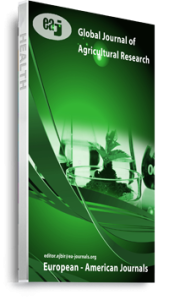Due to fresh water scarcity challenges around the world, high increase in the demand for agricultural irrigation water from different sources including hydrocarbon contaminated wastewater increases. However, these wastewaters can alter soil physical and chemical properties. The aim of this study is to evaluate the impact of the hydrocarbon contaminated irrigation water on some selected soil physical and chemical properties from three phases of Sharada industrial area, Kano, Nigeria. Soil and water samples were collected from three different phases of the industrial area and analyzed using standard laboratory procedures. The hydrocarbon irrigation water quality analyses indicated that the hydrocarbon concentration in all phases was low and below irrigation reuse standard. However, the major irrigation water quality parameters; chemical oxygen demand (COD), biochemical oxygen demand (BOD), nitrate nitrogen (NO3-N), hydrogen carbonate (HCO3), ammonium-nitrogen (NH4-N), potassium (K), chlorine (Cl) and orthophosphate phosphorus (PO4-P) in all phases were all high and above irrigation reuse standard in comparison to other parameters that were compliant to standard according to literature. Pertaining the impact of the hydrocarbon irrigation water on soil properties, results revealed that soil texture was sandy loam and loamy sand, pH was neutral while bulk density (BD), electrical conductivity (EC), organic carbon (OC), total nitrogen (TN), potassium (K), sodium (Na), calcium (Ca), magnesium (Mg), cation exchange capacity (CEC) and phosphorus (P) were increased and higher compared with control soils. However, they are low in terms of concentration when compared with literature rating standard except P. Moreover, Ca, Mg, CEC and P of the soils showed significant variation statistically (P<0.05) in comparison to the remaining soil properties that recorded no significant statistical difference (P>0.05) in all phases and control soils after irrigation with the hydrocarbon wastewater. Overall, the research indicated that, the hydrocarbon wastewater was not fit for irrigation and has impacted relatively on some physical and chemical soil properties. Hence, all industries in Sharada should be directed by authorities to avoid direct discharge of their effluents without thorough quality investigation. In addition, farmers should also be educated to periodically monitor and assess the irrigation water quality of the effluents prior to application as well as incorporation of organic and inorganic amendments in the irrigated soils to uplift the concentration of the soil properties with concomitant improvement in soil fertility and quality of the study area.
Citation: Sani, A., Isah, A.M., Adamu, U.K., Adam, I. A., Garba, M.D., Abdullahi, N., Dandago, M.A, Haruna, A.K., Aliyu, J.A., Aliyu, R.W and Auwal, M (2022) Effect of Hydrocarbon Contaminated Irrigation Water On Some Selected Soil Physical and Chemical Properties of Sudan Savannah Alfisols, Global Journal of Agricultural Research, Vol.10, No.5, pp.28-46
Keywords: irrigation; water quality; soil quality; hydrocarbon; organic carbon

